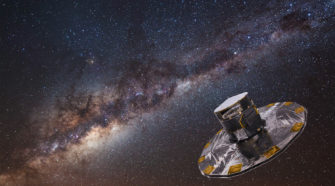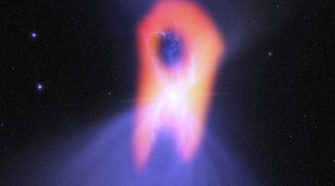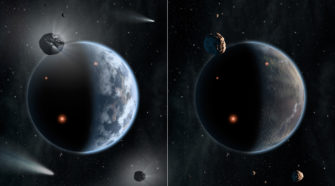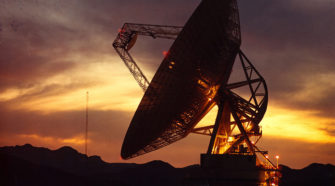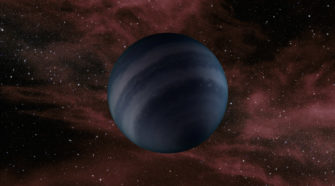Universe
Liftoff for ESA’s billion-star surveyor
ESA’s Gaia is destined to create the most accurate map yet of the Milky Way. By making accurate measurements of the positions and motions of 1% of the total population of roughly 100 billion stars, it will answer questions about the origin and evolution of our home Galaxy. The Gaia mission blasted off the morning …
Ghostly specter haunts ‘coldest place in universe’
At a cosmologically crisp one degree Kelvin (minus 458 degrees Fahrenheit), the Boomerang nebula is the coldest known object in the universe — colder, in fact, than the faint afterglow of the Big Bang, the explosive event that created the cosmos. Astronomers using the Atacama Large Millimeter/submillimeter Array (ALMA) telescope in Chile have taken a …
‘Witch head’ brews baby stars
A witch appears to be screaming out into space in this image from NASA’s Wide-Field Infrared Survey Explorer, or WISE. The infrared portrait shows the Witch Head nebula, named after its resemblance to the profile of a wicked witch. Astronomers say the billowy clouds of the nebula, where baby stars are brewing, are being lit up …
Planets rich in carbon may be waterless worlds
Planets rich in carbon, including so-called diamond planets, may lack oceans, according to NASA-funded theoretical research. Our sun is a carbon-poor star, and as result, our planet Earth is made up largely of silicates, not carbon. Stars with much more carbon than the sun, on the other hand, are predicted to make planets chock full …
Radio bursts discovered from beyond our galaxy
Astronomers, including a team member from NASA’s Jet Propulsion Laboratory in Pasadena, Calif., have detected the first population of radio bursts known to originate from galaxies beyond our own Milky Way. The sources of the light bursts are unknown, but cataclysmic events, such as merging or exploding stars, are likely the triggers. A radio burst …
Cold brown dwarfs blur line between stars and planets
In 2011, astronomers on the hunt for the coldest star-like celestial bodies discovered a new class of such objects using NASA’s Wide-Field Infrared Survey Explorer (WISE) space telescope. But until now, no one knew exactly how cool the bodies’ surfaces really are. In fact, some evidence suggested they could be at room temperature. A new …

